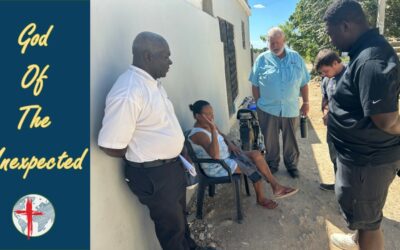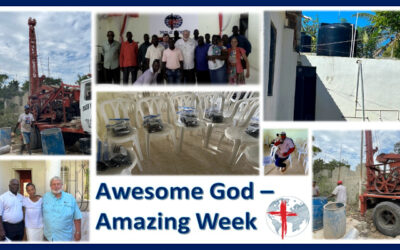Mission Questions: What is Jubilee
 Now, in the last post we looked at Jesus’ definition of His earthly mission. There was more to that than might meets the eye. Isaiah’s writing developed a train of thought. To get the impact of Isaiah 61, one needs to examine the material that preceded it. In particular, look at Isaiah 58. The first 10 verses show us some interesting things, among them:
Now, in the last post we looked at Jesus’ definition of His earthly mission. There was more to that than might meets the eye. Isaiah’s writing developed a train of thought. To get the impact of Isaiah 61, one needs to examine the material that preceded it. In particular, look at Isaiah 58. The first 10 verses show us some interesting things, among them:
- Israel was a nation that worshiped
- Their worship was focused on themselves
- They neglected those around them who were in need
To ask serious Mission Questions, we must ask: Why was all that a problem?
Mission Questions: Who Are the Poor?
The nation of Israel had indeed worshiped false gods. The idolatry is often cited as part of their demise. But as Isaiah records, their worship attendance continued. We might say their were at church every time the doors opened. Theirs (ours?) was a form of godliness without real faith or power. How do I know?
Look back in Deuteronomy 15. God had given His people a prescription for a good economy. In our political cycle with many of discussions of this type taking place, this study is even more interesting. God said there were to be no poor among His people. Imagine that! How could that be?
God gave instructions about forgiveness of debt – every 7 years. On top of that, every 50th year (after 7 sets of 7 years) was to be a Year of Jubliee. Everyone’s slate was to be wiped clean. Mortgaged land reverted to the family it was originally given to, and the whole cycle started over. It might surprise you to know the nation never actually obeyed God’s command in this matter.
When Jesus defined His mission, He was saying, in essence,
The Jubilee you never obeyed is here. I am proclaiming Jubilee!
So let me ask you, who were the poor? Was it those people the Israelites neglected? Or, was it the Israelites themselves? Or, was it both? I challenge you to look through the Scripture references above and wrestle a bit with the questions. Why? Because you and I are in there. Our mission can be seen in what I’ve challenged you to engage. We’ll look a little further in another post!
Soli Deo Gloria!







I believe it was the Israelites that were poor. When you are not honoring the Lord you cannot fully prosper.
Prov. 19:17 When you help the poor you are lending to the Lord–and he pays wonderful interest on your loan!
Good comments Jackie. Thanks!
They were both poor. The Israelites were spiritually bankrupt by failing to listen to and heed the word of The Lord. Those neglected remained in their poverty because of the Israelites disobedience. It was a lose-lose situation. If the Israelites would have only been obedient and allowed God to have his way, both groups of people would received what they desperately needed.
Good insight, Matt!
I agree that both were “the poor”. It could be asked who is the poorer of the two groups described? The ones oppressed and short on food or the spiritually poor of Israel. I suggest that it is the latter that is the most poor. If the spiritual side had been fixed then Israel would have been ok with God and blessed through helping the physically poor. Everyone wins.
So without the gospel being applied to our hearts and the hearts of those we minister to, anything we do is at best a short term solution. That, I suggest, is our mission focus to really help the people in the D.R.
Identifying the poor should be approached with a grain of caution; for one would never want to blame the oppressed for the actioned inflicted upon them by the oppressor. When “poor” is defined by substance it would seem to suggest that the neglected were poor. But I’m reminded of a story I heard when someone asked the question: Where was God during slavery, when slaves were being mistreated? — the answer: He was right there suffering with them!! In this, that would make them rich.
On the other hand the oppressor is readily identified as the poor and even more so “spiritually poor.” And with that classification comes condemnation for they are the ones who will soon see the “wrath” of God. Isaiah 58 details how those who oppress others will be dealt with, but it also details how those who do the opposite will be blessed, favored and named “The repairer of the breach.” As believers in Christ, Jubilee should be everyday; we should always seek to help others, always preferring others better than ourselves, not afraid or ashamed to share what we have with others, even at our own expense. In fact, we shouldn’t really look at it as an expense, because it all belongs to God; therefore, our view should simply be that of good stewards, who have been entrusted with the riches of God, to share with “all” people… Defining that term “all” might include those who don’t necessarily consider themselves Christians (but that’s probably another conversation).
Matt and Stanley together both nailed it. I couldn’t add anything to that. Great insight gentlemen.